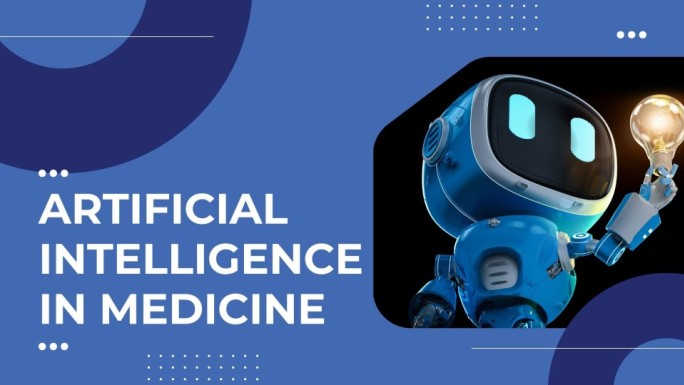Key Features of an Effective Nursing Assignment System
A practical nursing assignment system goes beyond typical task distribution; it embodies a framework that aligns nursing professionals' skills with patients' diverse needs. From patient acuity considerations to real-time communication tools, embedded features of a nursing assignment system can rearrange the traditional nursing process.
This article navigates through the key features that characterize an effective nursing assignment system. Also, we will highlight the importance of strategic implementation, figure the way out for challenges and see through what is coming for the future of this system.
Required Features of a Nursing Assignment System
Among constantly changing environments in healthcare organizations, the duty of the nursing assignment system is to provide adaptability, precision, and seamless integration with nursing workflow. Let's start to find out the most required features of a nursing assignment system that can ensure an efficient nursing workflow and enhance the quality of care.

Patient Acuity and Workload Considerations
Through algorithms, the system can assess patients' information and analyze the complexity of patient cases. Algorithms will ensure that nurses with the appropriate skills and experience are assigned to care for individuals with varying needs. The system facilitates equitable workload distribution by factoring in patient acuity, preventing nurse burnout. Each patient will receive an appropriate level of attention to their medical requirements.
Skill-Matching Algorithms
One of the key pillars of a practical nursing assignment system is the integration of skill-matching algorithms. These algorithms analyze the skills, competencies, and qualifications of nursing staff. By understanding the unique strengths of each nurse, the system can match them with tasks that align with their expertise. This optimizes patient care and enhances job satisfaction among nursing professionals. Nurses who engage in assignments that leverage their skills can create a sense of fulfillment and professional growth.
Real-Time Updates and Communication Tools
A nursing assignment system must provide real-time updates and communication tools to ensure timely response. Through instant notifications and alerts, the system keeps nursing staff informed about changes in patient conditions, new assignments, or critical updates. Communication tools within the system encourage collaboration among nurse team members, promoting efficient and quick information exchange. This real-time functionality is essential for adapting to patient needs and maintaining a cohesive healthcare environment.
Integration with Electronic Health Records (EHRs)
An advanced nursing assignment system integrates with Electronic Health Records (EHRs), creating a comprehensive ecosystem for patient care. By accessing patient data from EHRs, the system gains insights into medical histories, treatment plans, and specific care requirements. This integration enhances the precision of nursing assignments, allowing nurses to tailor their care based on accurate and up-to-date information. The synergy between the nursing assignment system and EHRs supports a comprehensive approach to patient care, simplifying workflows and improving care outcomes.
Challenges and Solutions in Implementing Nursing Assignment Systems
Implementing nursing assignment systems presents a set of challenges that demand strategic solutions. Tackling these challenges with foresight and precision is essential for the successful integration of nursing assignment systems. Let’s delve into some common barriers in implementing systems and figure out what is the best way to solve them.
Overcoming technological barriers
Challenges: Nurses may have varying levels of familiarity with technology, and resistance to change can hinder the adoption of new systems.
Solutions:
- Comprehensive training programs should be implemented, offering step-by-step guidance on system usage.
- User-friendly interfaces and clear documentation can facilitate a smoother transition.
- Seeking feedback from end-users during the implementation process. It will support identifying specific technological challenges, enabling targeted solutions and optimizations.
Ensuring data security and privacy
Challenges: The implementation of nursing care assignment system requires attention to safeguarding sensitive information.
Solutions:
- Involve employees in encryption protocols, access controls, and audit trails to ensure that only authorized personnel have access to patient data.
- Compliance with relevant healthcare regulations, such as HIPAA, must be a top priority.
- Clear communication about the security measures in place, coupled with ongoing training on data privacy practices.
Continuous improvement and system updates
Challenges: Maintaining and updating nursing assignment systems to align with changing healthcare practices and technological advancements.
Solutions:
- Organizations should establish a framework for improvement, regularly seeking input from end-users to identify areas for enhancement.
- Collaborative partnerships with system developers ensure that updates are tailored to address challenges.
- Transparent communication about the benefits of updates and the potential impact on workflows will help gain support from nursing staff for ongoing improvements.
Future Trends in Nursing Assignment System

It’s time to get to know what the future holds for the nursing assignment system. With the incredible speed of digital innovation, healthcare businesses are trying their best to catch up with trends and technology standards. So what can a nursing assignment system be involved in? Here are some pieces of the future that might fit.
Integration of AI (artificial intelligence)
The future of Nursing Care Assignment Systems is poised to witness a significant transformation with the integration of AI. AI algorithms can revolutionize task assignments by analyzing vast datasets, predicting patient acuity, and considering historical trends. These systems can dynamically adapt to changing conditions, optimizing nurse assignments in real-time. AI may also assist in predicting potential challenges, enabling timely intervention. As technology advances, AI will play a key role in enhancing the efficiency and responsiveness of nursing assignment systems.
Personalization and adaptability
Personalization and adaptability will be prioritized to ensure the unique needs of both patients and nursing staff. These systems will be designed to consider individual nurse skills, preferences, and work patterns. Personalized assignments not only enhance job satisfaction but also contribute to improved patient outcomes. Moreover, the adaptability of these systems will allow adjustments to the change in patient conditions, staffing levels, or healthcare policies. The ability to tailor assignments to specific contexts ensures a more responsive healthcare environment.
Collaborative platforms for comprehensive healthcare
Nursing assignment systems will soon emphasize collaborative platforms or tools that promote healthcare quality. These systems will integrate with other healthcare technologies, such as HIS (hospital information system) or other tools. This will enable a cohesive and interconnected healthcare ecosystem. Enhanced collaboration between nurses, physicians, therapists, and other healthcare professionals will be supported. The trend towards collaborative platforms aligns with the evolving nature of healthcare delivery, emphasizing teamwork and communication across diverse healthcare disciplines.
Conclusion
As we navigate the complexities of modern healthcare, the value of an effective nursing assignment system becomes more evident. The features embedded within this system form the new path of patient care delivery and collaboration among nurses. From the integration of AI, personalization to adaptability, the future promises a revolution in how nursing assignments will be managed, ensuring a better, cost-saving assignment model for healthcare organizations.









